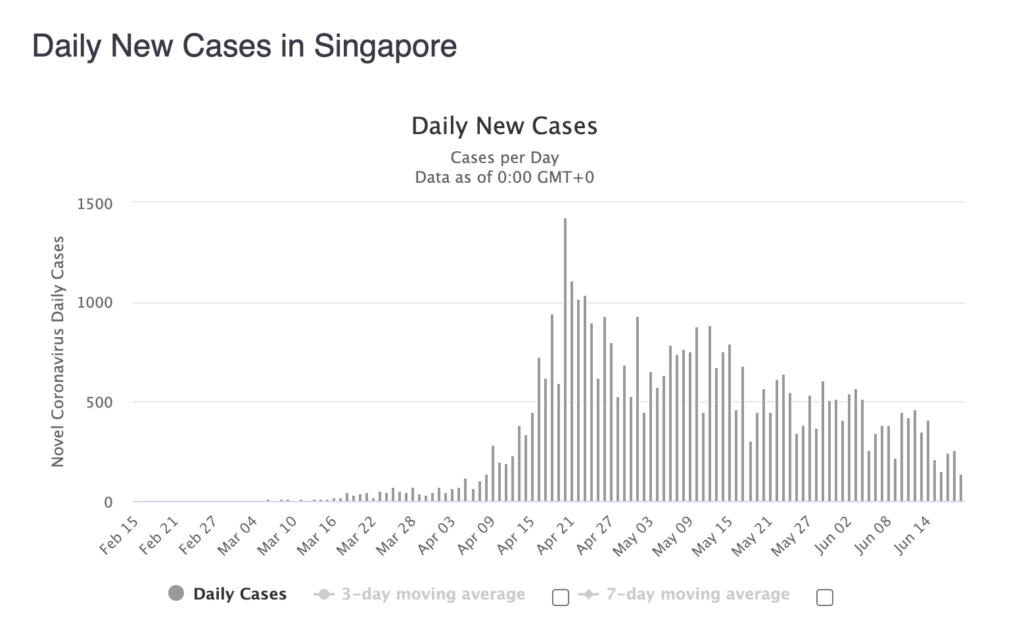These are the worst of times. We are dealing with a once-in-a-century pandemic – Covid-19, which has claimed the lives of over 400 thousand people and more than 3 million people are still fighting the infection. This has not only affected health of the people; the world economy is also in tatters; retail sales are down as much as 10% in some countries. The International Monetary Fund has predicted that the global economy can shrink by as much as 3%, and that the effects of the pandemic will be seen till at least 2021.
Global economy can shrink by as much as 3%
This is without a doubt amongst the worst ways to start the decade. We were at our prime, the world economic juggernaut was at an all-time high, people were visiting far-off countries like they were in their backyard, everyone was connected by technology, and foremost we were looking forward to making tremendous progress in technological advancement and improving the lives of people. The pandemic has thrown water on all this progress.
But this is not a time to curse our luck and moan over the lost opportunities and progress. One thing should be perfectly clear – this is a war. But this war in unique, we are fighting an invisible enemy, one who does not discriminate between rich and poor, between male and female, or among different religions, it targets our very species and we must fight it together as one people. All of us are soldiers of one army facing an enemy who kills without mercy and warning.

In the recent news reports, I can see a surprising restlessness in people to go back to their normal, pre-pandemic lives, like the demonstrators in US states of Michigan and Virginia in April. We so badly want to go back to our colleges, meet our friends, go out to swim or play, and return to our jobs. I understand that this pandemic, through its lockdowns and stringent social distancing measures, has led to tremendous hardships to a lot of people, especially the daily wage workers. But we must understand that this virus is going nowhere, at least till we have a vaccine or some fool-proof treatment which experts predict would take at-least one more year.
We just have to look at the experiences of Asian countries like China, Singapore, and Japan which were able to successfully stop the spread of the virus through early actions. But, as soon as they declared victory on the virus, and started to relax the measures, they started facing another wave of infections. Singapore was touted as the example of a country which fought with the virus perfectly. But, in the last few days, it has again started experiencing more than 1000 cases each day inside its crowded slums and migrant dormitories, and it has again had to impose a much stricter lockdown till at lease June 1. Studies have shown that early lifting of the lockdown will lead to an even worse second wave, and countries like India with its underfunded and creaky health system will be quickly overrun by the crushing death and misery that Covid-19 brings.

All this makes one thing starkly clear; we are in for the long haul, there is no clear end to this fight, at least till a vaccine is ready. Most pandemics, if not contained in the first few weeks, like the 2009 Swine Flu, 2014 Ebola, the dreaded 1918 Spanish Flu pandemics last for years on end till herd immunity is established, through infection or vaccine. Some economists dread the severe impact of the stringent measures to prevent the virus spread, and say that we should start normalization as soon as possible to minimize the effect on our way of life, or as President Trump put it- “The cure cannot be worse than the problem”.
But there are a couple of little caveats in this theory, let’s talk about them.
First, no country currently has a capability to test everyone, or even a significant proportion of its population, on a constant basis. Even the countries at the forefront of testing like the Italy, United States, and South Korea have only conducted 70,000, 62,000, and 20,000 per million respectively till the time of writing. For opening the economy with minimum spread of the virus, we have to develop an infrastructure that is capable to carry out millions of tests daily, which is simply out of reach of many developing nations like India and Pakistan, which have a chronically underfunded healthcare system.
No country in the world has unlimited healthcare facilities
Second, though opening up the economy will surely alleviate the acute stress that the economy is facing in the short term. It will definitely help in bringing back the livelihoods of the daily wage workers, restart the construction and manufacturing, and reignite the retail and entertainment industries. But, at the same time it will also bring out the perfect conditions for the virus to spread. Even if we follow stringent social distancing measures while going about our daily lives, the virus will spread rapidly. No country in the world has unlimited healthcare facilities, and the finite resources would be soon overrun with the heavy influx of new Covid-19 patients. In developing nations, this would bring a situation much worse than what we witnessed in Italy, with deaths in the millions and widespread devastation.
According to a research by team of economists from US Federal Reserve and MIT Sloan where they studied the effects and outcomes of Non-pharmaceutical Interventions (NPI) like social distancing and lockdowns, on the mortality rate and economy of multiple US cities after the 1918 Spanish Flu. They found that cities which implemented stringent NPIs against the Flu not only did not perform worse than those cities which didn’t act early, but also that early actions led to these cities being able to restart economy sooner and see more economic growth after the pandemic. This only points to one fact – people drive the economy; there can nothing be worse for an economy than mass, uncontrolled deaths of people.
What I’m trying to say is that though the economy is important, saving lives should be given the top position. We have learned from our experience with pandemics that when it ends, people have a newfound appreciation of life and spend more. Measures should be taken to support the economy like bailout packages, cheaper loans, distribution of food, and monetary support to the agriculture industry. Many countries have announced massive packages; US has announced a $2 trillion package, UK a £330 billion package, and India a ₹20 trillion ($300 billion) package, all of which will go towards supporting the unemployed and ailing industries.
We are in a war, and we must fight this together as one army.
One thing is clear, dealing with Covid-19 would need our leaders to make some very difficult decisions, having implications far in the future. As I said earlier, we are in a war, and we must fight this together as one army. People should be focused on stopping the spread of the virus, and at the same time supporting as many poor people as they can. This is the time to form a balance between saving lives and keeping up the economy, as both can go forward without the other. It is time for our leaders to listen to science and fact, and put politics aside while making decisions.
We are in for the long haul. There will be no going back to the way of life we had before the pandemic, there would be a new normal with social distancing measures being in place for at least another year. We would be wearing masks like fashion accessories, sanitizing our hands would be like putting on moisturizer, tourism would move at snail’s pace, and sports and entertainment will be fundamentally different. This is a time for patience, we should follow the government directives, and keep whatever is necessary to keep us and our loved ones safe. Though this is a tough time, but it will pass like all other pandemics before it. We must fight together, support the poor and the vulnerable, and emerge on the other side like a phoenix emerges from its ashes.
![]()
















